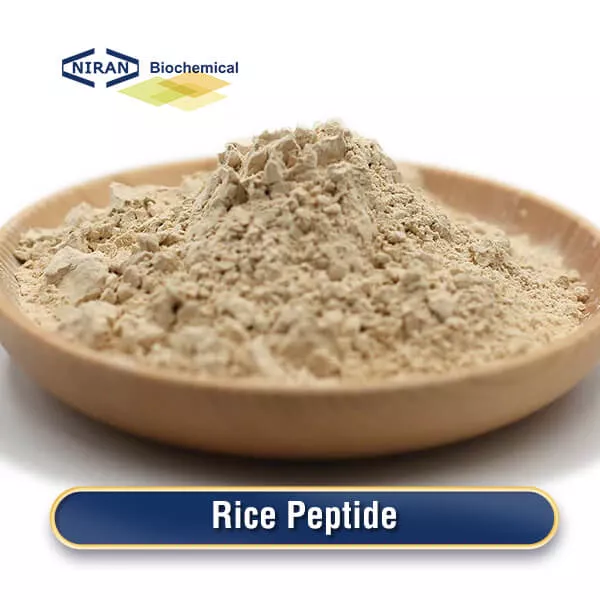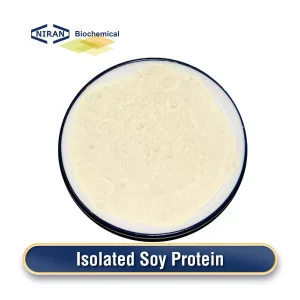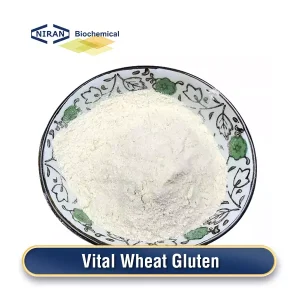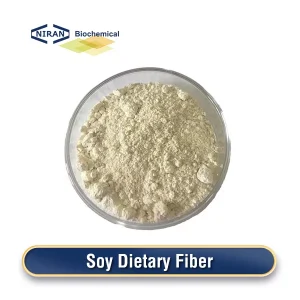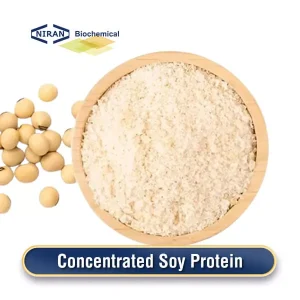Niran Biochemical
YOUR RELIABLE FOOD INGREDIENTS
Send Inquiry
Rice Peptide
- Certification: KOSHER, ISO, HALAL, FSSC22000, BRC, etc.
- MOQ: 1000KG
- Shelf Life: 2 Years
Inquire Product
Product Description
What Is Rice peptide?
Rice peptide is a mixture of short-chain peptides and amino acids made from rice protein by enzymatic hydrolysis. It is an easily absorbed, highly soluble powder that is white or pale yellow in color.
It is widely used in functional foods and beverages, health products, infant foods, elderly foods and special medical purpose foods because of its multiple biological activities such as antioxidant, immunomodulatory and anti-fatigue.
The market prospects of rice peptides are broad, thanks to the growing demand of consumers for healthy and functional foods. With the improvement of production processes and the reduction of costs, rice peptides have received more and more attention and applications worldwide, and its market size is expected to continue to expand.
Recommended Dosage:
| Food name | Maximum usage(g/kg) |
| Functional drinks | 2-5 g/kg |
| Sports drinks | 3-8 g/kg |
| Protein powder | 50-100 g/kg |
| Ready-to-eat oatmeal | 5-15 g/kg |
| Breakfast cereals | 5-15 g/kg |
| Whey protein drinks | 5-15 g/kg |
| Yogurt and fermented dairy products | 5-10 g/kg |
| Bakery | 5-10 g/kg |
| Bread and pastries | 10-20 g/kg |
| Biscuits and desserts | 5-15 g/kg |
| Chocolate and candy | 5-10 g/kg |
| Plant milk | 5-10 g/kg |
| Frozen ready-to-eat foods | 5-15 g/kg |
| Salad dressings and sauces | 5-10 g/kg |
| Rice flour and rice paste | 10-20 g/kg |
Rice peptide Has A Wide Range Of Uses
- Easy to absorb: Rice peptides are composed of short-chain peptides and amino acids, with a small molecular weight, easy to be digested and absorbed by the human body, and can be used faster than complete proteins.
- Antioxidant: Rice peptides exhibit strong antioxidant properties that can help squelch free radicals, prevent oxidative damage to cells, and delay cell aging.
- Immunomodulatory: It can enhance the function of the immune system and improve the body’s ability to fight against bacteria and viruses.
- Anti-fatigue: Rice peptides can promote energy metabolism, reduce fatigue, and improve athletic performance and endurance.
- Improve intestinal health: Its easy digestion and absorption properties help improve intestinal function, promote the growth of beneficial bacteria, and help maintain intestinal health.
- Moisturizing skin care: Some ingredients in rice peptides can moisturize and repair the skin barrier, and are suitable for cosmetics and skin care products.
User Asked Question:
Q: How do rice peptides compare to whey protein?
A: Rice peptides and whey protein each have their own characteristics. Rice peptides are short-chain peptides obtained by proteolysis of rice protein. They are easy to digest and absorb, suitable for people with allergies, vegetarians and those who need immune support, and are widely used in functional foods and health products.
Whey protein comes from milk and is rich in branched-chain amino acids. It is especially suitable for athletes and fitness enthusiasts who need to quickly supplement protein and promote muscle repair.
Rice peptides have good compatibility with a variety of people, while whey protein performs well in sports nutrition and muscle growth.

